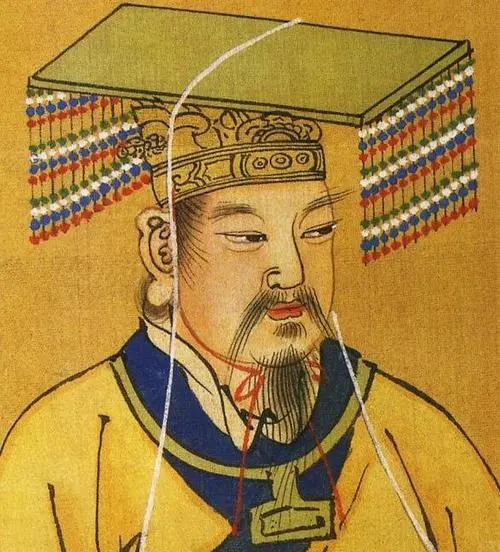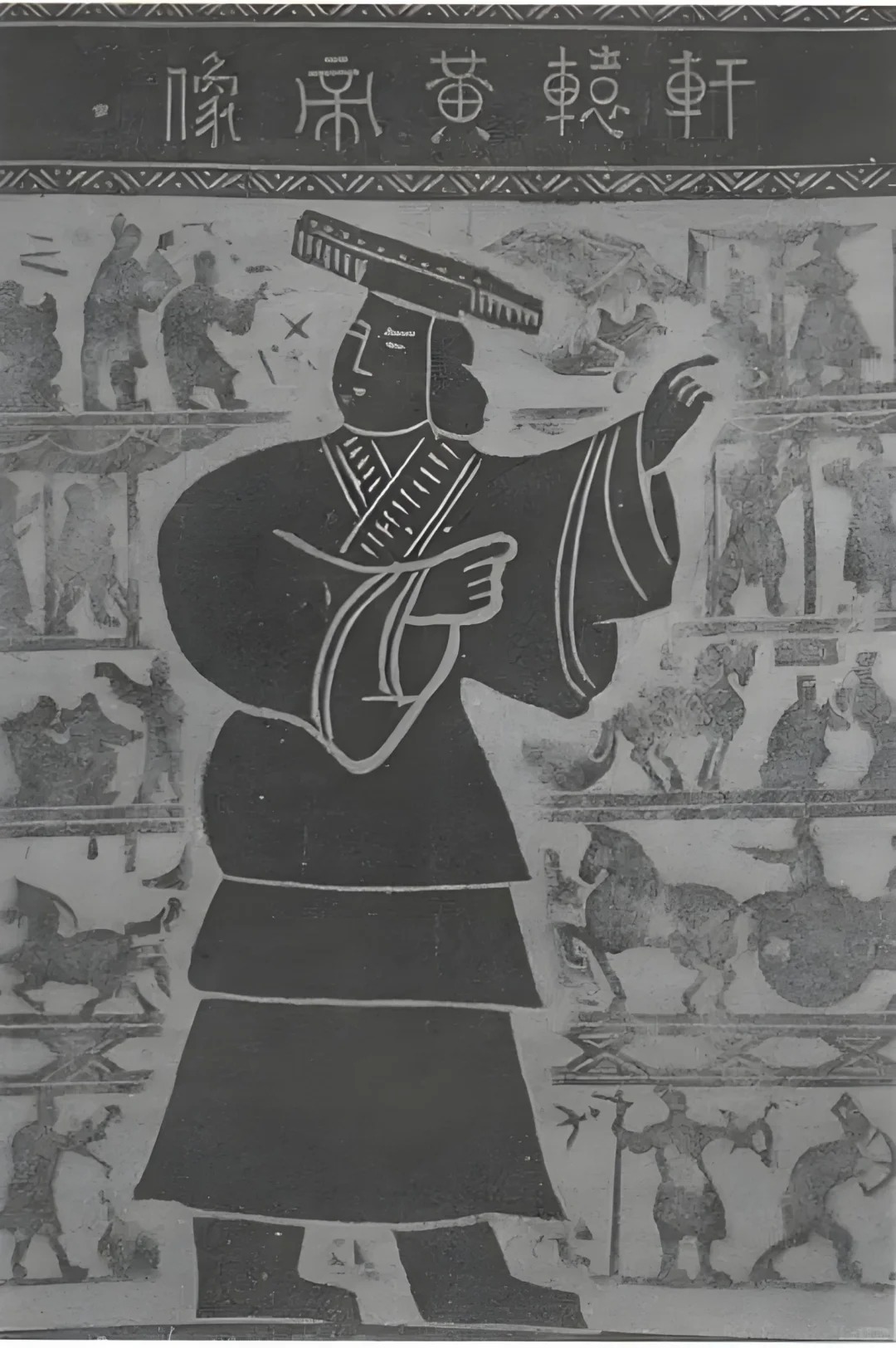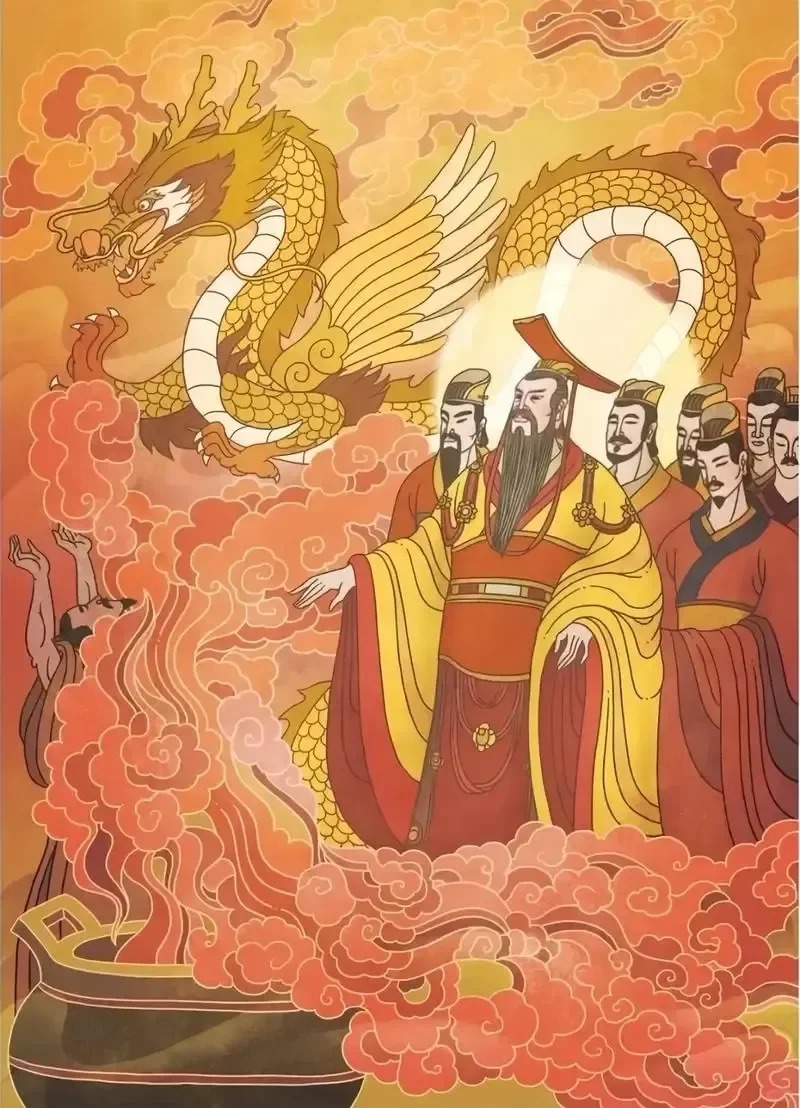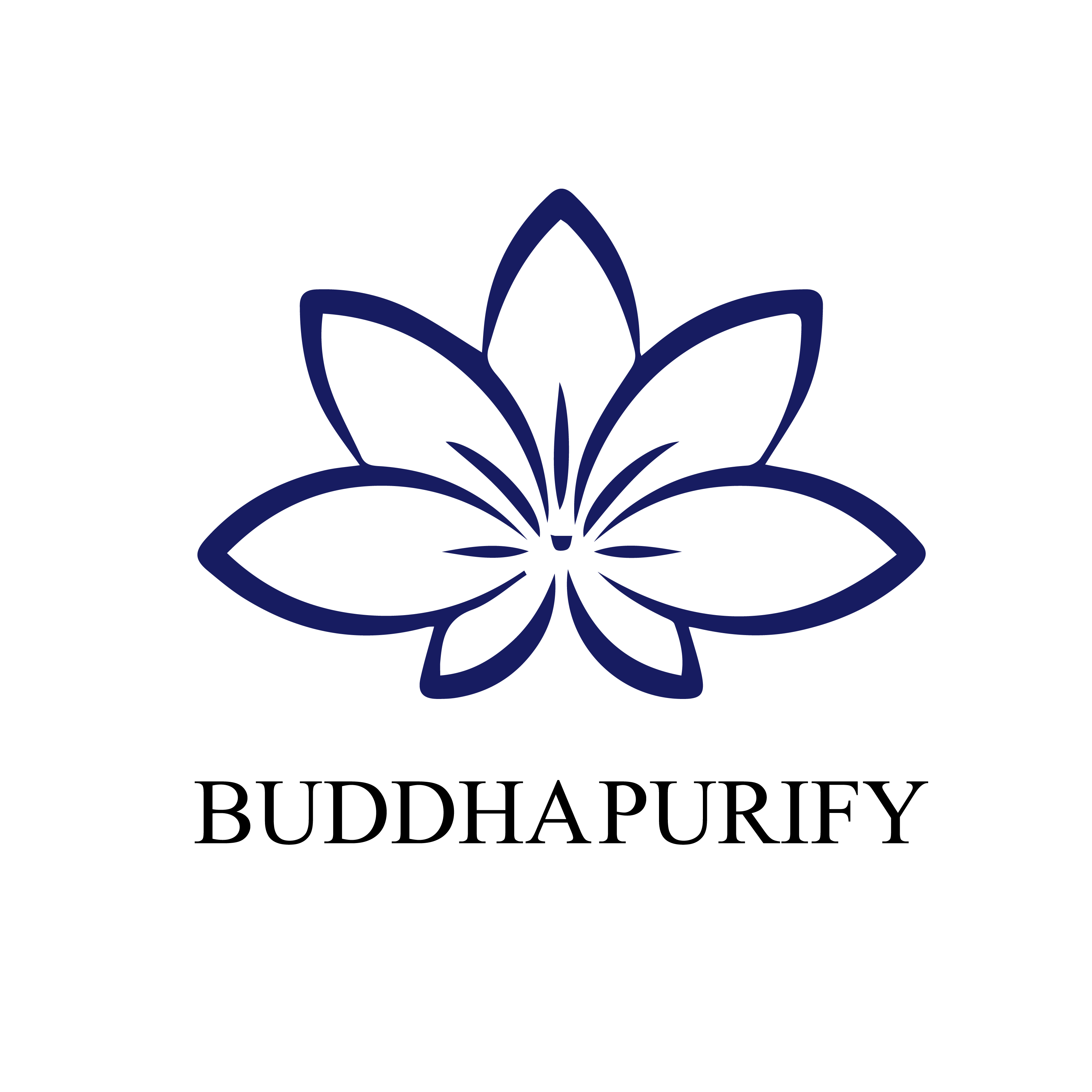Huang Di: The Founding Father of Chinese Civilization and His Enduring Legacy
Huang Di, also known as Xuanyuan Huang Di, is a foundational figure in Chinese history, revered as the ancestor of the Chinese nation and the first of the Five Emperors. His contributions to the development of Chinese civilization are significant, earning him the title "The Ancestor of Chinese Civilization." Huang Di unified various tribes, established rituals and systems, and advanced societal development. He, along with his ministers, authored the renowned "Huang Di Nei Jing" (Yellow Emperor's Inner Canon), laying the foundation for the development of Traditional Chinese Medicine.
Life
Huang Di, also known as Xuanyuan Huang Di, is regarded as the progenitor of the Chinese people, honored as the "Ancestor of Humanity." He lived in ancient times, approximately from 2717 BC to 2599 BC. According to historical records, Huang Di was born near the Ji River, which is why his surname is Ji. At his birth, a divine light covered his mother, indicating his extraordinary destiny.
Huang Di's life is filled with legendary tales. From a young age, he was exceptionally intelligent, diligent in learning, and well-read. During his reign, Huang Di implemented benevolent governance, ruling with a heart of compassion and earning the love of his people. Through the conquest of other tribes, he unified the Hua Xia region and established the first relatively stable regime in Chinese history. Huang Di focused not only on political and military development but also on the well-being of his people. He promoted agricultural techniques and advancements, which significantly improved living standards. He also established a series of rituals and systems to regulate social order and interpersonal relationships. These systems had considerable significance at the time and profoundly influenced Confucian culture in later generations.
In addition to his political and cultural achievements, Huang Di was also a great inventor and scientist. According to legend, he invented vehicles, bows and arrows, and clothing, contributing greatly to human progress. Huang Di advocated for respecting natural laws and pursuing the philosophical idea of harmony between heaven and humanity. He believed that humans and nature are an interconnected whole and should coexist harmoniously, following natural laws. This philosophy has had a lasting impact on subsequent philosophical and scientific thought.
Contributions
Huang Di's contributions to the history of the Hua Xia people and the development of Chinese culture are immense. His contributions can be detailed as follows:
-
Unification of Hua Xia and Establishment of the State Huang Di unified the Hua Xia region through the conquest of other tribes, establishing the first relatively stable regime in Chinese history. This unification ended tribal conflicts, restored social order, and facilitated cultural exchange and integration among tribes, laying the foundation for the further development of Hua Xia civilization.
-
Formulation of Rituals and Systems Huang Di established a series of rituals and systems to regulate social order and interpersonal relationships. These rituals covered areas such as sacrifices, marriage, funerals, official appointments, and military expeditions, playing a crucial role in maintaining social stability and promoting cultural exchange. Additionally, Huang Di advocated for a clear division of duties and powers among officials, leading to more orderly governance.
-
Development of Agriculture and Improvement of Living Standards Huang Di emphasized agricultural production, promoting advanced farming techniques and tools to increase agricultural yield and productivity. He taught people to grow grains, raise silkworms, and invented the compass cart and pottery-making tools, significantly improving the living standards of the people. These measures not only enhanced living conditions but also laid the foundation for the country's prosperity.
-
Promotion of Cultural Exchange and Development of Chinese Culture During his reign, Huang Di actively promoted cultural exchange and integration. He encouraged respect for different cultural traditions and learning from each other among tribes. This policy facilitated the flourishing and development of Hua Xia culture. Huang Di also standardized writing, measurement systems, and other fundamental tools, making cultural dissemination more accessible. These measures not only promoted Chinese culture but also supported progress in literature, art, and science in later generations.
Historical Status
Huang Di, as the ancestor of Chinese civilization and the leader of the Five Emperors, made significant contributions to the prosperity and stability of the Hua Xia people. His historical status is not only due to his outstanding political and military achievements but also his contributions to the creation and development of Hua Xia culture.
Huang Di's principles of governance and ritual traditions have been passed down and developed, having a profound impact on later generations. Since the Qin and Han dynasties, successive emperors have looked up to Huang Di as a model, promoting benevolent governance and ethical rule. Huang Di's wisdom and thoughts also deeply influenced Chinese philosophy. His philosophy of "Harmony between Heaven and Humanity" advocates for the harmonious coexistence of humans and nature, becoming a core idea in Chinese philosophy.
In modern times, Huang Di's image remains highly esteemed, symbolizing pride and heritage for the Chinese nation. His memorial and commemoration activities are highly valued. Every year on the third day of the third lunar month, various forms of commemorative activities are held nationwide by Chinese people to express their respect and gratitude to Huang Di. These activities not only honor ancestors but also preserve and promote Chinese cultural traditions.
Cultural Impact
Huang Di's impact on the formation and development of Hua Xia culture has been decisive. He unified the Hua Xia region, established a relatively stable regime, and promoted cultural exchange and integration through the formulation of rituals and agricultural advancements. Under Huang Di's influence, Hua Xia culture gradually developed core values of harmony, moderation, and benevolence, becoming the spiritual pillar of the Chinese nation. This cultural tradition continues to this day, having a profound impact on Chinese society, politics, culture, and education.
Huang Di's image and stories have had a broad influence on literature and art. Many legends and stories about Huang Di have been passed down, enriching the literary heritage of the Hua Xia people and providing abundant material for future literary creations. Works such as "Shan Hai Jing" and "Shi Ji" contain records and descriptions of Huang Di, and later poets and writers have created many immortal works based on Huang Di. These works not only have literary value but also contain rich historical and cultural connotations, showcasing the unique charm of Huang Di's culture.
Huang Di's influence extends to architecture and art as well. Some ritual buildings and artifacts from Huang Di's era have become treasures of Chinese culture. For example, the mausoleum of the First Emperor of Qin was built based on the design of Huang Di's tomb, and Han dynasty palaces were deeply influenced by Huang Di's culture. In terms of artifacts, Huang Di's era's painted pottery and jade items have become precious items in art history, showcasing the exquisite craftsmanship and aesthetic pursuits of ancient artisans. These buildings and artifacts not only hold artistic value but also serve as physical evidence of Huang Di's culture, playing a significant role in the preservation and promotion of Huang Di's cultural legacy.
Huang Di's cultural influence is also reflected in education and philosophy. Huang Di's thought emphasizes respecting natural laws, moral cultivation, and spiritual enhancement. These philosophical traditions have deeply impacted China's education and philosophy fields. From Confucianism to Daoism and later Buddhism and Neo-Confucianism, traces of Huang Di's thought can be seen. These traditions have not only influenced political and social governance in Chinese history but also permeated people's life beliefs and values. In modern society, Huang Di's cultural influence remains significant. It helps preserve and promote the outstanding traditions of Chinese culture and can inspire national pride and cohesion. By learning and inheriting Huang Di's wisdom and spirit, we can better advance Chinese culture's innovation and development, providing a solid cultural foundation and spiritual support for building a community with a shared future for humanity.
Rituals and Commemoration
Huang Di, as the ancestor of Chinese civilization, has always been honored through various rituals and commemoration activities. Every year on the third day of the third lunar month, known as Huang Di's birthday, Chinese people across the country hold various forms of memorial activities, including sacrifices, prayers, and dragon boat races, to express their respect and gratitude to Huang Di. These activities are not only a way to honor ancestors but also to preserve and promote Chinese cultural traditions.
In Huang Di's hometown, Huangling County in Yan'an City, Shaanxi Province, a grand public worship ceremony is held annually. This event, which began during the Spring and Autumn and Warring States periods, has evolved over thousands of years into a culturally significant event with international impact. Each year, the ceremony attracts thousands of participants, including overseas Chinese representatives, government officials, scholars, and others. The ceremony is solemn and grand, including ringing bells, beating drums, presenting flower baskets, offering incense, and performing rites to express respect and gratitude to Huang Di.
Many cities and regions in China also host various scales of Huang Di worship and commemoration activities. These activities come in various forms and rich content, including not only sacrificial rites but also cultural performances and exhibitions, attracting many tourists and the public.
In addition to commemorative activities, there are historical sites and museums related to Huang Di, such as Huang Di's Tomb and Huang Di Temple, which are important places for remembering Huang Di. These sites not only preserve rich historical and cultural heritage but also serve as important carriers for inheriting Huang Di's spirit and promoting Chinese culture.
Brand Introduction: BuddhaPurify
BuddhaPurify is a brand deeply rooted in the rich heritage of Chinese traditional culture and Buddhist practices. Our mission is to offer a unique blend of ancient wisdom and modern elegance through our products, which are designed to enhance spiritual well-being, personal growth, and holistic health.
Foundation and Philosophy
Inspired by the timeless teachings of Buddhism and the profound traditions of Chinese culture, BuddhaPurify is dedicated to providing products that reflect the serene and enlightened aspects of these ancient philosophies. Our brand is built on the principles of mindfulness, purity, and spiritual harmony, aiming to bring balance and tranquility to our customers' lives.
Cultural Enrichment
We believe in the power of cultural enrichment and strive to educate and inspire our customers through the stories and meanings behind our products. Our brand seeks to bridge the gap between traditional spiritual practices and contemporary life, offering products that resonate with both ancient wisdom and modern sensibilities.
Conclusion
BuddhaPurify is more than just a brand; it is a journey into the heart of Chinese traditional culture and Buddhist spirituality. Through our thoughtfully curated products, we aim to support your quest for inner peace, spiritual growth, and a balanced life. Explore our collection and experience the harmonious blend of tradition and tranquility that defines BuddhaPurify.





